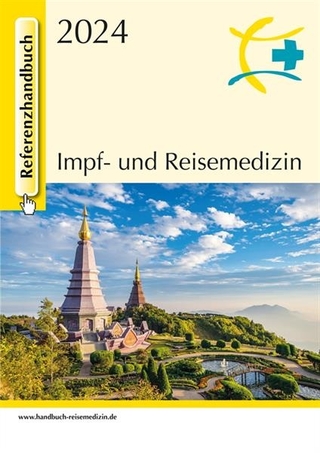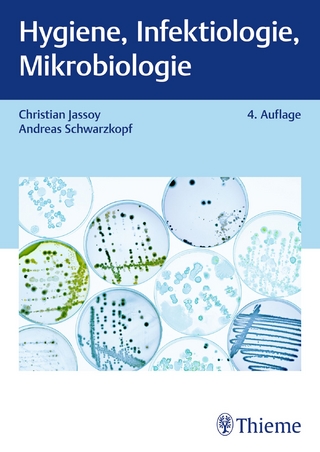
Parasitology
A Conceptual Approach
Seiten
2016
Arcler Education Inc (Verlag)
978-1-68094-531-7 (ISBN)
Arcler Education Inc (Verlag)
978-1-68094-531-7 (ISBN)
Examines the structure and classification of parasites and the mechanisms of parasitic diseases. The book also describes specific human parasites and the diseases they cause. Emphasis is placed throughout on the basic biology of the pathogens and their host-parasite relationships
Parasitology is the study of parasites, their hosts, and the relationship between them. As a biological discipline, the scope of parasitology is not determined by the organism or environment in question, but by their way of life. This means it forms a synthesis of other disciplines, and draws on techniques from fields such as cell biology, bioinformatics, biochemistry, molecular biology, immunology, genetics, evolution and ecology. Medical parasitology traditionally has included the study of three major groups of animals: parasitic protozoa, parasitic helminths (worms), and those arthropods that directly cause disease or act as vectors of various pathogens. A parasite is a pathogen that simultaneously injures and derives sustenance from its host. Some organisms called parasites are actually commensals, in that they neither benefit nor harm their host (for example, Entamoeba coli). Although parasitology had its origins in the zoologic sciences, it is today an interdisciplinary field, greatly influenced by microbiology, immunology, biochemistry, and other life sciences. Infections of humans caused by parasites number in the billions and range from relatively innocuous to fatal. The diseases caused by these parasites constitute major human health problems throughout the world. (For example, approximately 30 percent of the world’s population is infected with the nematode Ascaris lumbricoides.) The incidence of many parasitic diseases (e.g., schistosomiasis, malaria) have increased rather than decreased in recent years. Other parasitic illnesses have increased in importance as a result of the AIDS epidemic (e.g., cryptosporidiosis, Pneumocystis carinii pneumonia, and strongyloidiasis). The migration of parasite-infected people, including refugees, from areas with high prevalence rates of parasitic infection also has added to the health problems of certain countries. In this book, several deal with the structure and classification of parasites and the mechanisms of parasitic diseases. The remaining chapters describe the specific human parasites and the diseases they cause. Emphasis is placed throughout on the basic biology of the pathogens and their host-parasite relationships. Thus, descriptions of the basic properties of the pathogens, the pathogenesis of the diseases they cause, host defenses, and epidemiology are highlighted.
Parasitology is the study of parasites, their hosts, and the relationship between them. As a biological discipline, the scope of parasitology is not determined by the organism or environment in question, but by their way of life. This means it forms a synthesis of other disciplines, and draws on techniques from fields such as cell biology, bioinformatics, biochemistry, molecular biology, immunology, genetics, evolution and ecology. Medical parasitology traditionally has included the study of three major groups of animals: parasitic protozoa, parasitic helminths (worms), and those arthropods that directly cause disease or act as vectors of various pathogens. A parasite is a pathogen that simultaneously injures and derives sustenance from its host. Some organisms called parasites are actually commensals, in that they neither benefit nor harm their host (for example, Entamoeba coli). Although parasitology had its origins in the zoologic sciences, it is today an interdisciplinary field, greatly influenced by microbiology, immunology, biochemistry, and other life sciences. Infections of humans caused by parasites number in the billions and range from relatively innocuous to fatal. The diseases caused by these parasites constitute major human health problems throughout the world. (For example, approximately 30 percent of the world’s population is infected with the nematode Ascaris lumbricoides.) The incidence of many parasitic diseases (e.g., schistosomiasis, malaria) have increased rather than decreased in recent years. Other parasitic illnesses have increased in importance as a result of the AIDS epidemic (e.g., cryptosporidiosis, Pneumocystis carinii pneumonia, and strongyloidiasis). The migration of parasite-infected people, including refugees, from areas with high prevalence rates of parasitic infection also has added to the health problems of certain countries. In this book, several deal with the structure and classification of parasites and the mechanisms of parasitic diseases. The remaining chapters describe the specific human parasites and the diseases they cause. Emphasis is placed throughout on the basic biology of the pathogens and their host-parasite relationships. Thus, descriptions of the basic properties of the pathogens, the pathogenesis of the diseases they cause, host defenses, and epidemiology are highlighted.
Patricia Marques obtained her PhD form University College Dublin in 2010. Her interests are on Microbiology and Parasitology. She is currently working as a Postdoc at University of Maryland Baltimore, USA on Chlamydia infections.
| Erscheinungsdatum | 20.03.2018 |
|---|---|
| Sprache | englisch |
| Maße | 152 x 229 mm |
| Themenwelt | Medizin / Pharmazie ► Medizinische Fachgebiete ► Mikrobiologie / Infektologie / Reisemedizin |
| ISBN-10 | 1-68094-531-9 / 1680945319 |
| ISBN-13 | 978-1-68094-531-7 / 9781680945317 |
| Zustand | Neuware |
| Haben Sie eine Frage zum Produkt? |
Mehr entdecken
aus dem Bereich
aus dem Bereich
und Erste Hilfe an Bord
Buch | Softcover (2024)
MWV Medizinisch Wissenschaftliche Verlagsgesellschaft
39,95 €


